All the Best of Innovation Award Winners at CES 2020
An all-in-one system that can select recipes, order the ingredients and then cook it for you was among award-winning products at CES.

The Consumer Electronics show has wrapped up for another year, and the top tech has been recognised.
The Consumer Technology Assocition (CTA) that runs the show has two award categories for products: Honoree and Best of Innovation Awards.
An honoree is given to any product that scores above the threshold for specific product categories, meaning there are many multiple recipients.
Best of Innovation Awards go to one product in each category, or sometimes two in the uncommon event of a tie.
To be eligible the individual, organisation or authorised agent who manufactures, designs, engineers or promotes the product has to market in the United States within a set time period.
For the CES 2020 awards, products must be available for sale to the public, for the first time, in U.S. retail outlets or online between April 1, 2019, and April 1, 2020.
While this means some of the awarded products are already on sale, others will be going to market through kickstarters or other platforms in the coming months.
Check out the full list of Best Of Innovation award winners showcased at the show below.
HEALTH & WELLNESS — COLGATE PLAQLESS PRO
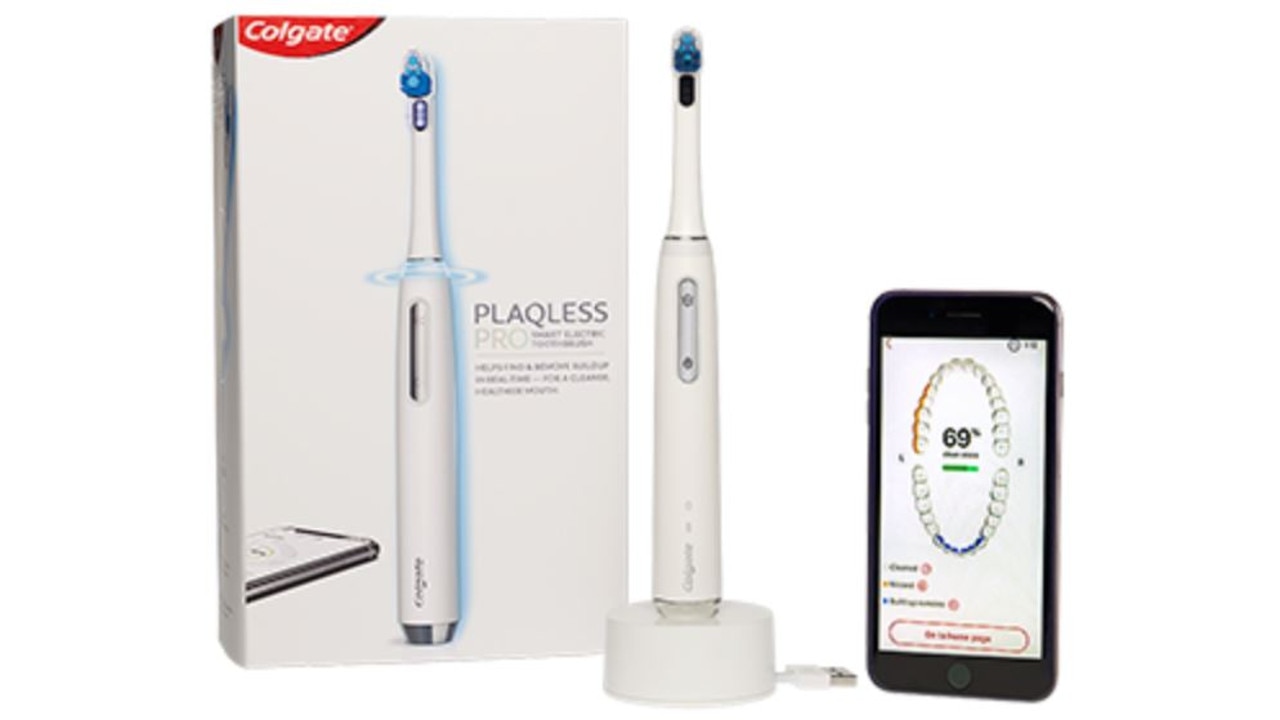
In a world where ever more expensive electric toothbrushes are touting their AI capabilities to track how well you’re brushing and coach you to do it better, Colgate has added optical sensors in the brush head to give feedback in real time and help you get the best clean. Given this will make the already pricey consumable brush heads (the blades in the electric toothbrush version of the razor-and-blades business model) even more expensive, it will be interesting to see whether this product actually catches on when it goes on sale in a couple of months.
HOME APPLIANCES — COOKING PAL JULIA

While Colgate wants to bring intelligent tech into your bathroom, the kitchen is also emerging as another favourite room in your future smart home, as manufacturers try to cram chips and innovation into existing products. Highlights in the field include knock-on fridge doors that can show you what’s inside so you don’t have to open the door, but the innovation award went to a product that combines several others.
The CookingPal Julia is an all-in-one system that combines with an included tablet hub, giving you step by step instructions on how to prepare a meal before the system handles the actual cooking part for you. In many ways its similar to the Thermomix system many swear by to put food on the table. The Julia system also boasts AI capabilities to learn what foods you like so it can suggest others like it. It can also keep track of what ingredients you have and even order more for you. While we’re not sure how well giving the all-in-one cooking system a woman’s name will fly in 2020 (the company also makes another product called the Sophie and one called Marco) the award shows those at the CTA think it has potential to catch on.
VIRTUAL AND AUGMENTED REALITY — NEXTMIND

The world’s first “brain-sensing” device that gives you control over AR/VR headsets. While it sounds like spooky science fiction, the creators swear it’s non-invasive. The device sits on the back of the head and extracts neural signals from your brain, turns them into data, uses that data to give real-time control to users. Like many of the award winners, NextMind also uses artificial intelligence to learn what you want it to do and deliver digital commands.
ROBOTICS — OWL LABS MEETING OWL PRO
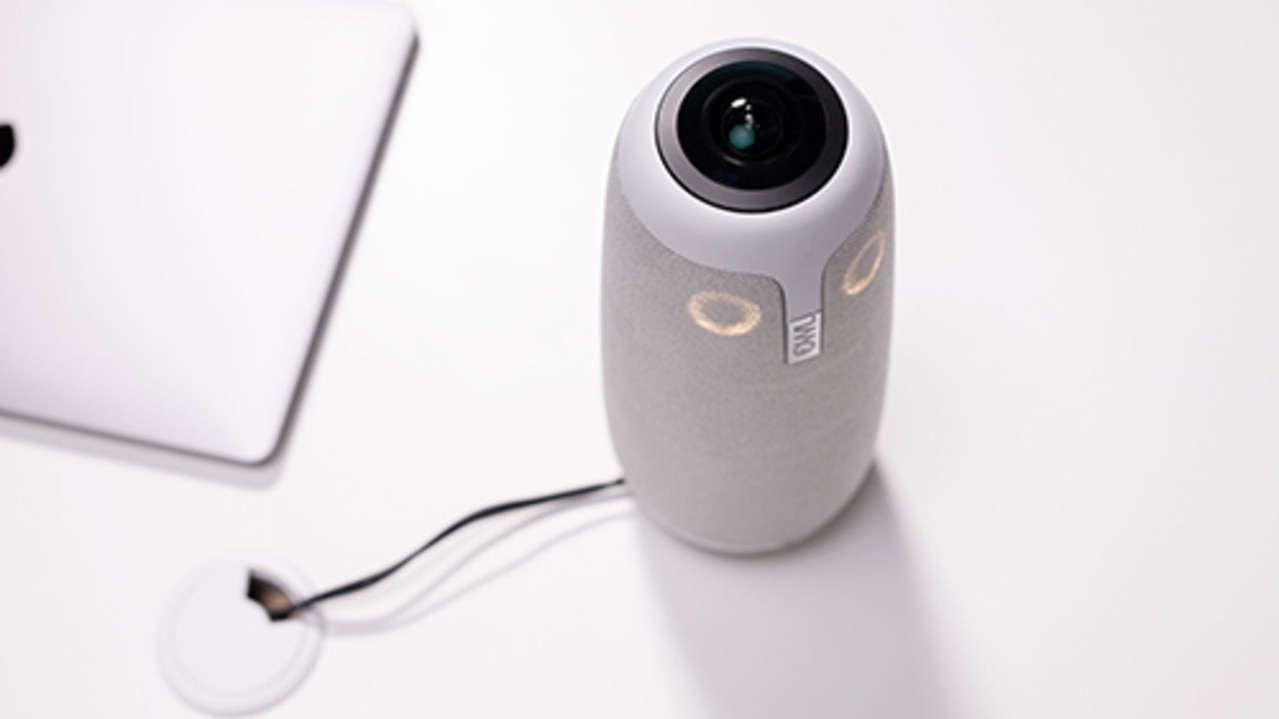
Robotics was a thorny category at CES in 2019, after an award was given to sex tech company Lora Di Carlo, then rescinded, then finally returned. The ensuing controversy saw CES take a more liberal approach to sex tech this year (as well as abolish the heavily outdated “booth babe” concept of using models to draw in horny attendees, though that message didn’t appear to have made it to all booths this year), though there is still no separate award category. Lora Di Carlo did pick up a bunch more honoree awards this year but the best of show award went to Owl Labs for a 360-degree camera-meets-speaker designed for video conferencing. It uses voice recognition to pivot towards and focus on whoever’s talking for more immersive conferencing among remote teams.
DRONES AND UNMANNED SYSTEMS — DOOSAN MOBILITY INNOVATION LONG ENDURANCE FUELCELL DRONE

Doosan’s award-winning drone uses hydrogen fuel cell technology and on-board power packs to facilitate long endurance flights more than three times longer than traditional battery drone rivals. Doosan quotes flight times of up to two hours.
DIGITAL IMAGING/PHOTOGRAPHY — LEICA BLK2GO

Leica carries huge weight in camera circles, primarily for its old film rangefinders which were used by some of the most celebrated photographers of the 20th century. But the product it won an award for at CES 2020 was nothing like those used by photographers like Henri Cartier-Bresson or Garry Winogrand. The BLK2Go is a handheld imaging laser scanner that recreates 3D environments in real time. While certainly cool its hard to say why this is useful for the average consumer, but that’s for the future to work out.
CYBERSECURITY AND PERSONAL PRIVACY — AVAST OMNI
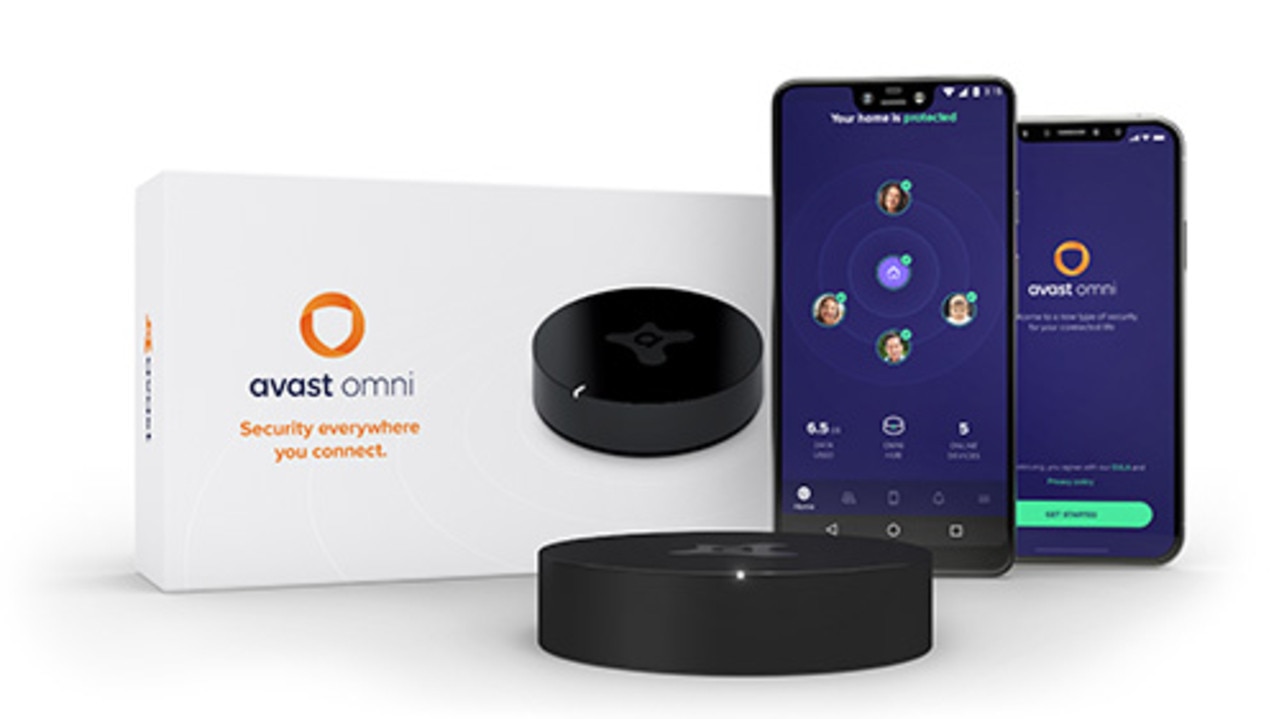
Avast has built up a solid reputation with its free antivirus solutions used by millions to protect themselves online, but as smart home tech becomes more prevalent, it's not focusing on a way to protect all the internet of Things devices in your home. Rather than installing software on each device, the Avast Omni attaches physically to your modem instead, saving you time and protecting your devices.
TECH FOR A BETTER WORLD — MMH LABS BLUEFIN

The Bluefin is a tag that can be attached to fish to collect data on ocean temperature, pressure, depth and pH levels in parts of the ocean people can’t get to.
The tag weighs only 2.4 grams and functions for a whole year up to depths of 2000 metres. The data can then be used to try and protect marine ecology and habitats. The data could also be used to track things like rising ocean temperatures.
EMBEDDED TECHNOLOGIES — SYNTIANT NDP100 NEURAL DECISION
PROCESSOR + ATMOSIC M3 BATTERY FREE BLUETOOTH SOC + DVXPLORER INIVATION
The Embedded Technologies category is for technology that will end up in consumer electronics rather than products themselves. While hardly the most exciting category, that didn’t make it any easier for the judges to pick one winner, and it ended up going to three.
The Syntiant Neural Decision Processor is designed to put AI processing and machine learning in pretty much any device, requiring only 150 microwatts of power. This means the small chip can be put in low power devices like hearing aids (which could use AI to attune themselves to the room you’re in and you’re ear) without requiring a connection to the cloud or another device
The same motivation is behind the Atmosic M3 Bluetooth system-on-chip. Trying to minimise the power consumption of embedded technologies greatly expands their potential use cases.
The DVxplorer IniVation actually is a finished product that depends on the company’s patented neuromorphic pixel design, which is designed to closely mimic the human retina.
SMART CITIES — VALERANN SMART ROADS SYSTEM + NTHING PLANTY CUBE
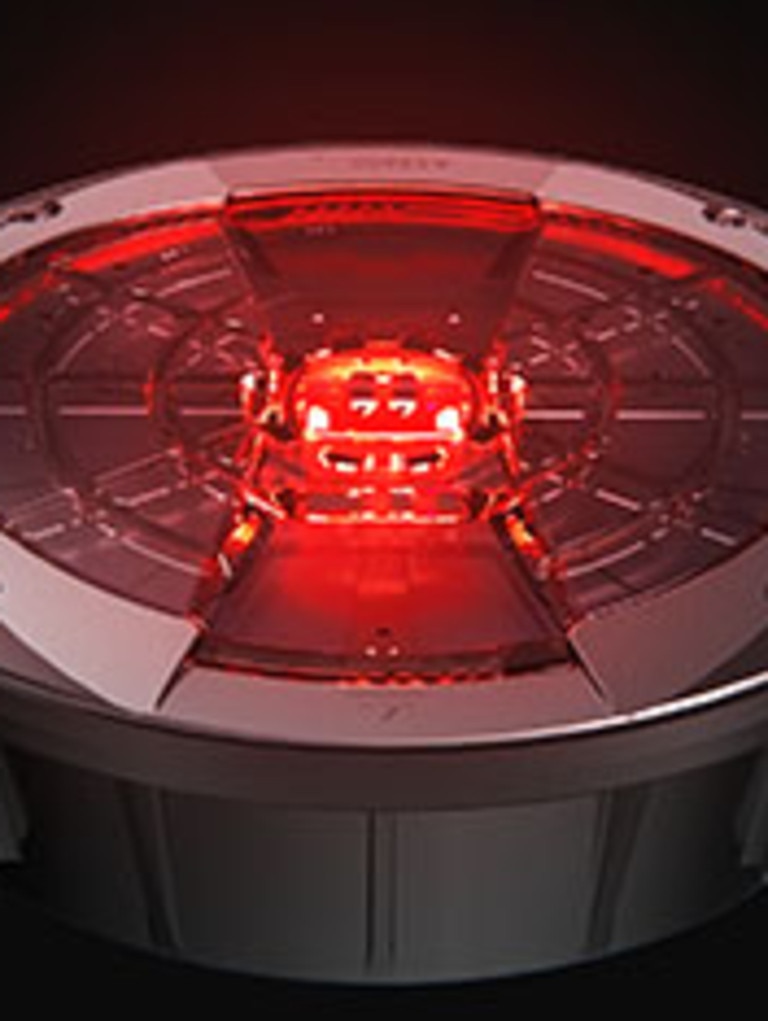
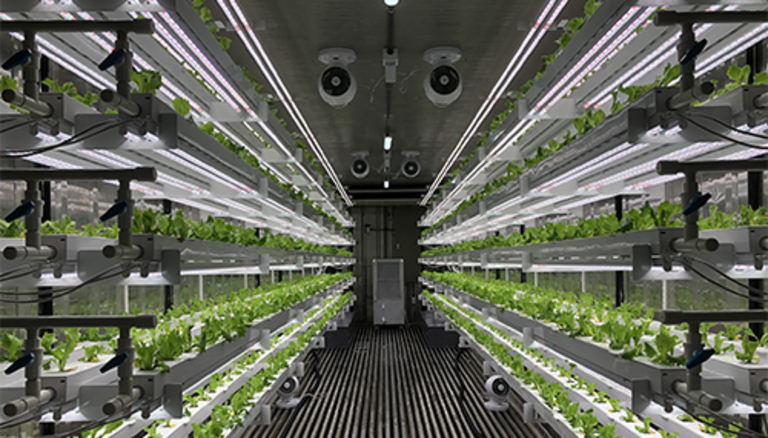
As “smart cities” become a hotter topic with the rollout of 5G mobile networks that greatly facilitate them, it’s no surprise judges had a hard time picking just one product from all those on display.
Valerann’s smart roads system hopes to generate data that can facilitate autonomous vehicles, as well as provide for faster and safer journeys that.
The solar-powered markers can also light up in different colours to reflect road conditions or show when lanes are closed.
The other award was given to nThing’s Planty Cube, a modular vertical farm to help boost vegetable production by creating the perfect conditions using software and servers to control its environment. The vertical farming concept produces uniform quality vegetables in production methods considered more sustainable and easier to control because they aren’t dependent or affected by the weather.
SMART HOME — SLEEPNUMBER CLIMATE 360 BED

You can’t put a price on a good night’s sleep, but the Sleepnumber Climate 360 bed will cost you several thousands of dollars to promise it to you. The bed adjusts the temperature to help you get to sleep easier and stay asleep longer.
At first it warms up then cools down once you’re asleep so you don’t wake up sweaty in the middle of the night.
It can also be adjusted for firmness as well as raise or lower the head or feet to help snorers.
Different sides of the bed can be adjusted for couples who have different preferences.
ACCESSIBILITY — CODE JUMPER + ORCAM HEAR

The Code Jumper makes it easier for children, especially ones with vision impairments, to learn how to code.
The awards for assistive technology had some stiff competition and ended up being awarded to two different products this year.
A Microsoft-developed product in conjunction with the American Printing House for the Blind, the Code Jumper teaches children with low or no vision computer coding skills. It can of course also be used by children without impairment so that they can all learn together.
The Orcam Hear is a smart hearing aid that can identify who is talking to you, isolate their voice, and boost it above others when multiple people are speaking.
COMPUTER PERIPHERALS & ACCESSORIES — ZYXCEL COMMUNICATIONS HALO LIGHT WIFI6 INTELLIGENT HOME WI-FI SYSTEM
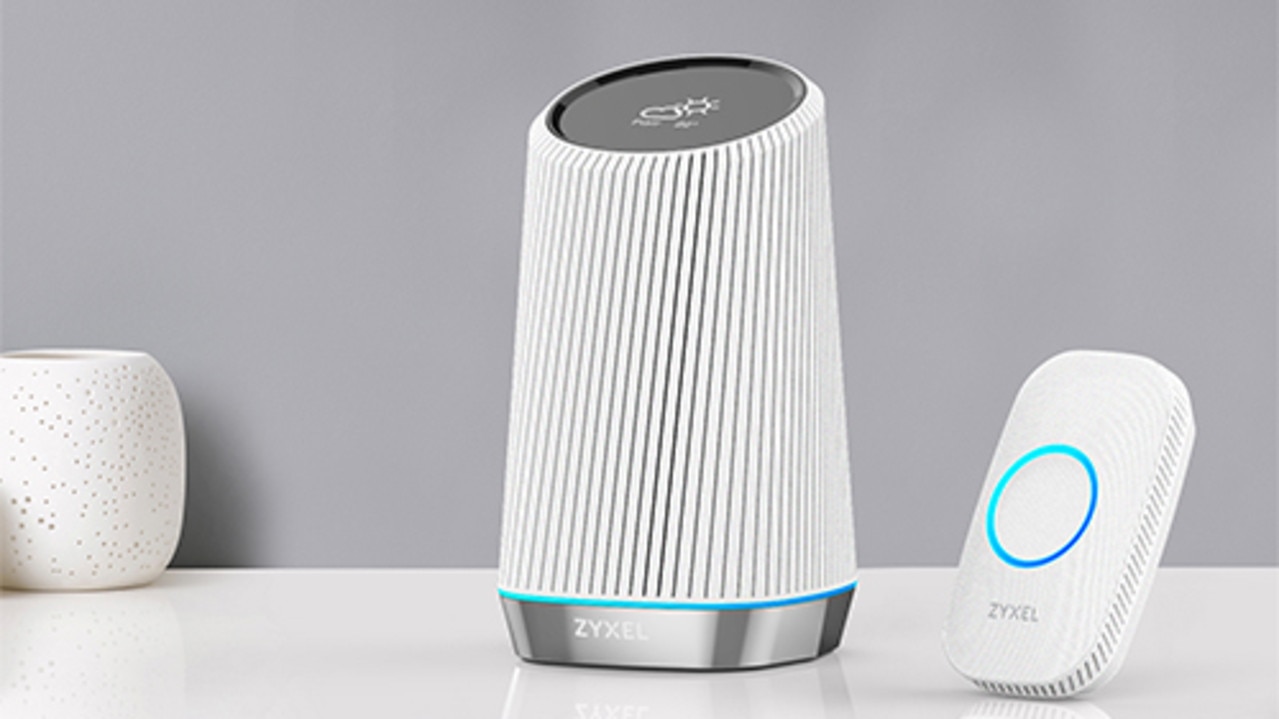
A mesh Wi-Fi system that uses the new, faster WiFi6 to support smart home technology as well as give you faster download speeds and stronger connections in all parts of your home. The system uses machine learning to track the Wi-Fi devices typically in your home, allowing it to look out for anomalies that could indicate security breaches. It’s also easier to set up than other mesh Wi-Fi systems and can be controlled using Amazon’s Alexa voice commands.
What do you think is the best of the award-winning products at CES 2020? Let us know what you think in the comments below.



